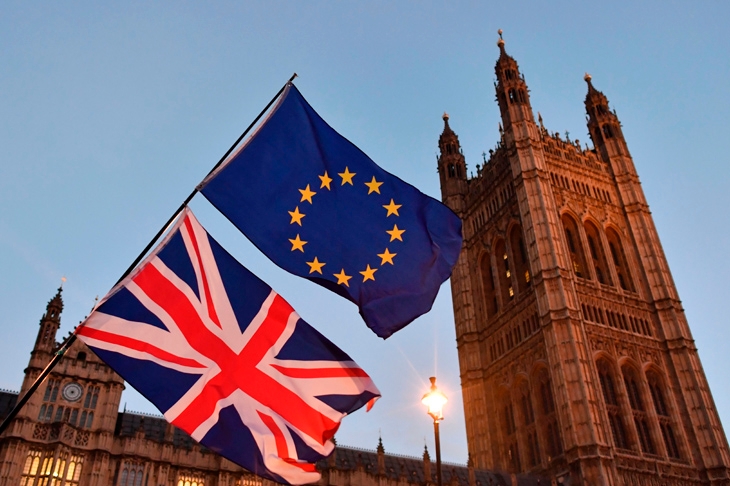Over the summer, a no-deal Brexit became less likely. Eurosceptic ultras have been forced to be less blasé. The return of Steve Baker to the European Research Group, the lead Brexiteer bloc of MPs, has injected more realism into their discussions on the subject. Baker was involved with no-deal planning in government and has made clear to colleagues that it would present significant challenges.
Those intimately involved in the negotiations on the British side say that the EU is also more concerned about the talks failing. As deadlines approach, the focus is on the sheer logistical complexities that would come with Britain crashing out of the European Union. Senior figures on the EU side are alarmed at the challenge of helping Ireland through a hostile no deal. The European Central Bank’s discussions with the Bank of England have been a reminder of the close relationship between the eurozone and the City of London.
One of the EU’s priorities has been to prevent any alternative economic model emerging in Europe. A no-deal Brexit would almost certainly do that. Britain would either opt for the Corbynite approach of heavily subsidised industry or try to turn itself into a western Singapore, in a bid to regain competitiveness. Both would damage the EU’s interests.
Despite this concern, there have been no breakthroughs in the negotiations. I am told that the UK government is ‘by no means there yet’ when it comes to persuading the EU member states to change Michel Barnier’s negotiating position. Barnier is arguing with ever greater ferocity against Theresa May’s Chequers proposal.
Not all member states share Barnier’s hostility towards Chequers. Some are even interested in what it proposes. But there is nowhere near the kind of momentum behind May’s proposals that would lead to the EU being prepared to break up the single market in the way that Chequers envisages. Pragmatically, one might think that a British proposal that would see it essentially stay in the single market where it has a trade deficit with the EU and leave where it has a surplus would seem attractive to the EU. But this is to ignore the fact that the EU is far more a political construct than an economic one.
What happens next? One option would be for May to make further concessions to help make Chequers more acceptable to the EU. But she has very little room for manoeuvre. As one MP — on whose loyalty she depends — warns, if May concedes on either the customs union or free movement, it would be ‘an act of self-immolation’.
The Tory reaction to Chequers, which has been far more hostile than Downing Street expected, means that May is boxed in. So while neither the UK government nor the EU 27 want ‘no deal’, Chequers isn’t going to happen in its present form. This revives the possibility of a Canada-style free trade agreement.
The EU has long said that it is prepared to do a tariff-free, quota-free trade deal with the UK. This would please Brexiteers, since it would see the UK unambiguously leave the single market, the customs union and the jurisdiction of the European Court of Justice. As Jacob Rees-Mogg mischievously pointed out after a meeting with Barnier on Monday, Eurosceptics and the EU’s chief negotiator agree with each other more than the British government does.
One can see how May could sell a Canada-style deal to her party and the country. She could say that she tried to negotiate a closer economic relationship with the EU than a simple free trade deal, but that was not possible without making concessions which would have compromised the referendum result. She could argue that the choice was now between this agreement and the chaos of no deal, and that there was no time left to negotiate anything else. Indeed, seeing as the government doesn’t intend to introduce the withdrawal act until January next year, this will be part of May’s argument whatever agreement is reached.
But a Canada-style arrangement runs into two problems straight away. The first, and most important, is the so-called backstop. Given what the UK agreed to last December, such a deal would quickly create checks on trade between Northern Ireland and the rest of the UK. Even if Tory MPs could be persuaded to accept this, the Democratic Unionist Party — upon whom the Tories are reliant for their majority — would almost certainly not. So this scenario relies on the EU allowing the UK to at least soften what it signed up to in December.
The other reason that May has not chosen a Canada-style deal is that No. 10 fears what it would mean for those UK industries with complex, Europe-wide supply chains. Even if the Irish border were not an issue, there would still be many figures in the cabinet who would argue for a closer economic relationship with the EU than a Canada-style deal would allow for.
May is no longer able to make many more concessions. She has already lost two senior ministers over the Chequers proposals and, since quitting the government, Boris Johnson has recovered his mojo. At Tory conference, he will be the star of the fringe once more. His address to a thousand-person rally will easily overshadow the main conference programme on Tuesday.
There are still formidable obstacles to the former foreign secretary becoming prime minister. For one thing, it is hard to see how he would get through the parliamentary rounds of any Tory leadership contest. But his renewed popularity with the grassroots is a reminder of May’s vulnerability.
For all these reasons, one of those who has acted as a go-between for No. 10 and Tory Brexiteers thinks that Canada is becoming a likely option. But as another Tory cautions: ‘If anyone tells you they are sure of how all this is going to play out, they are lying.’







Comments